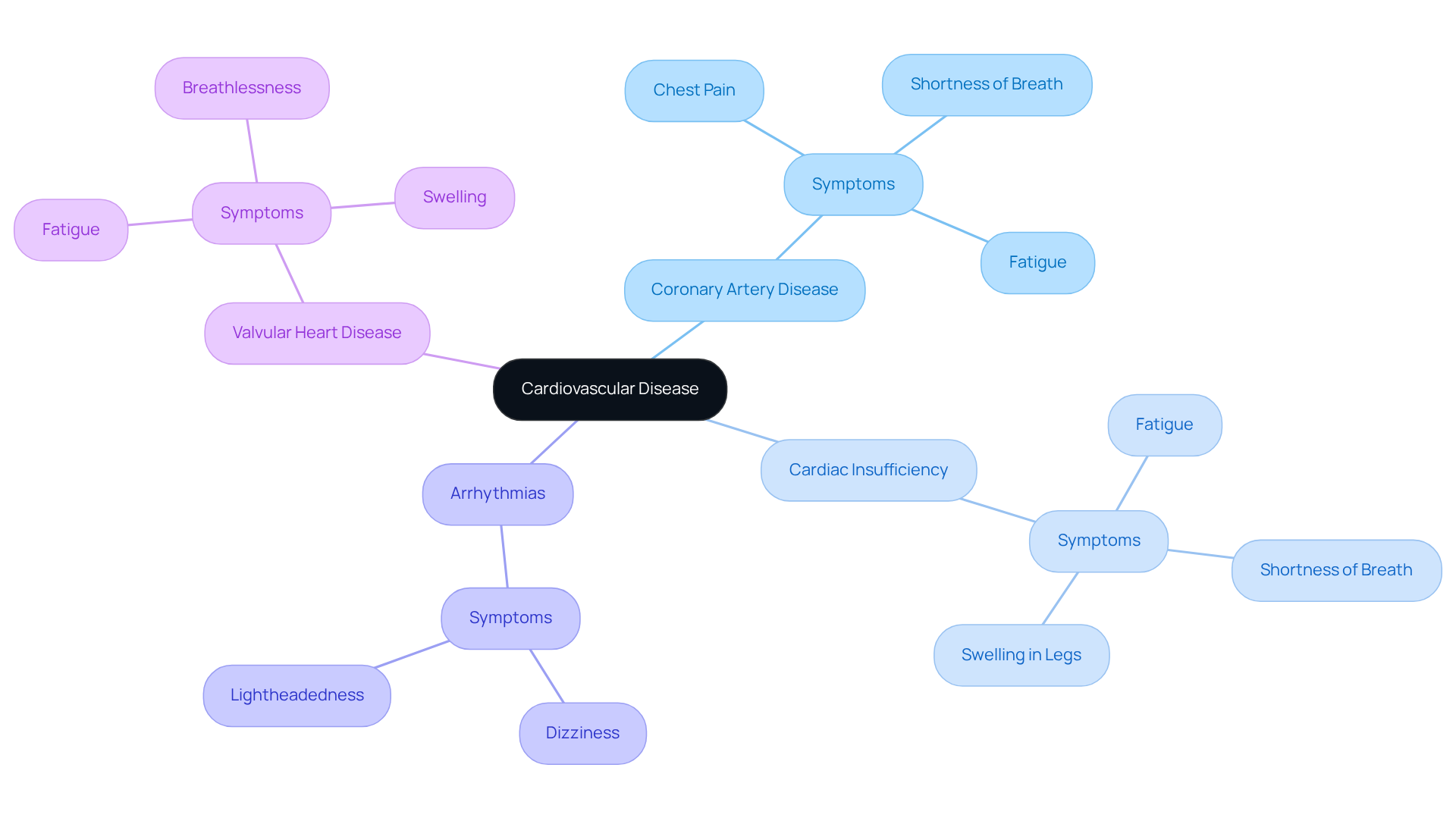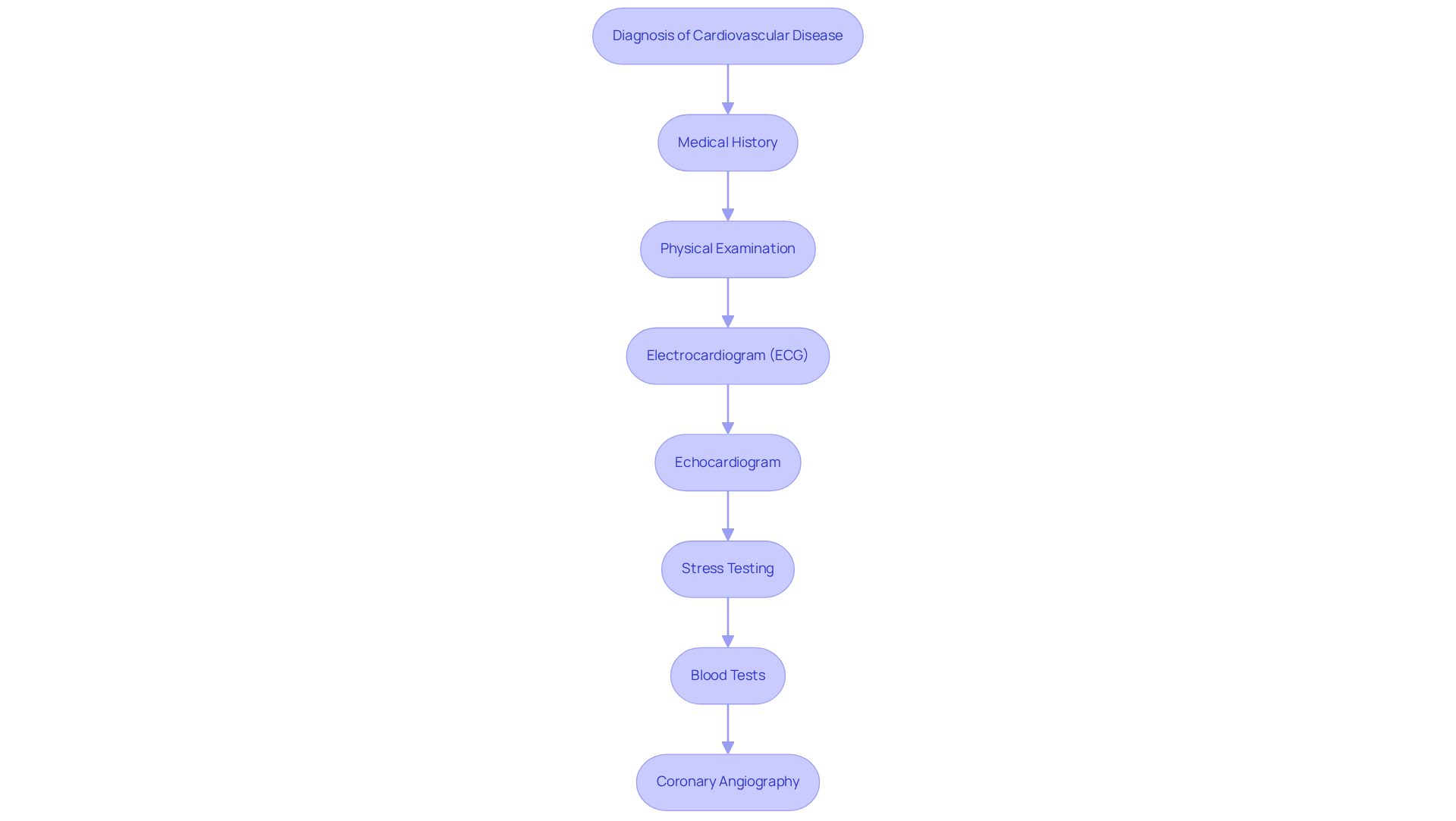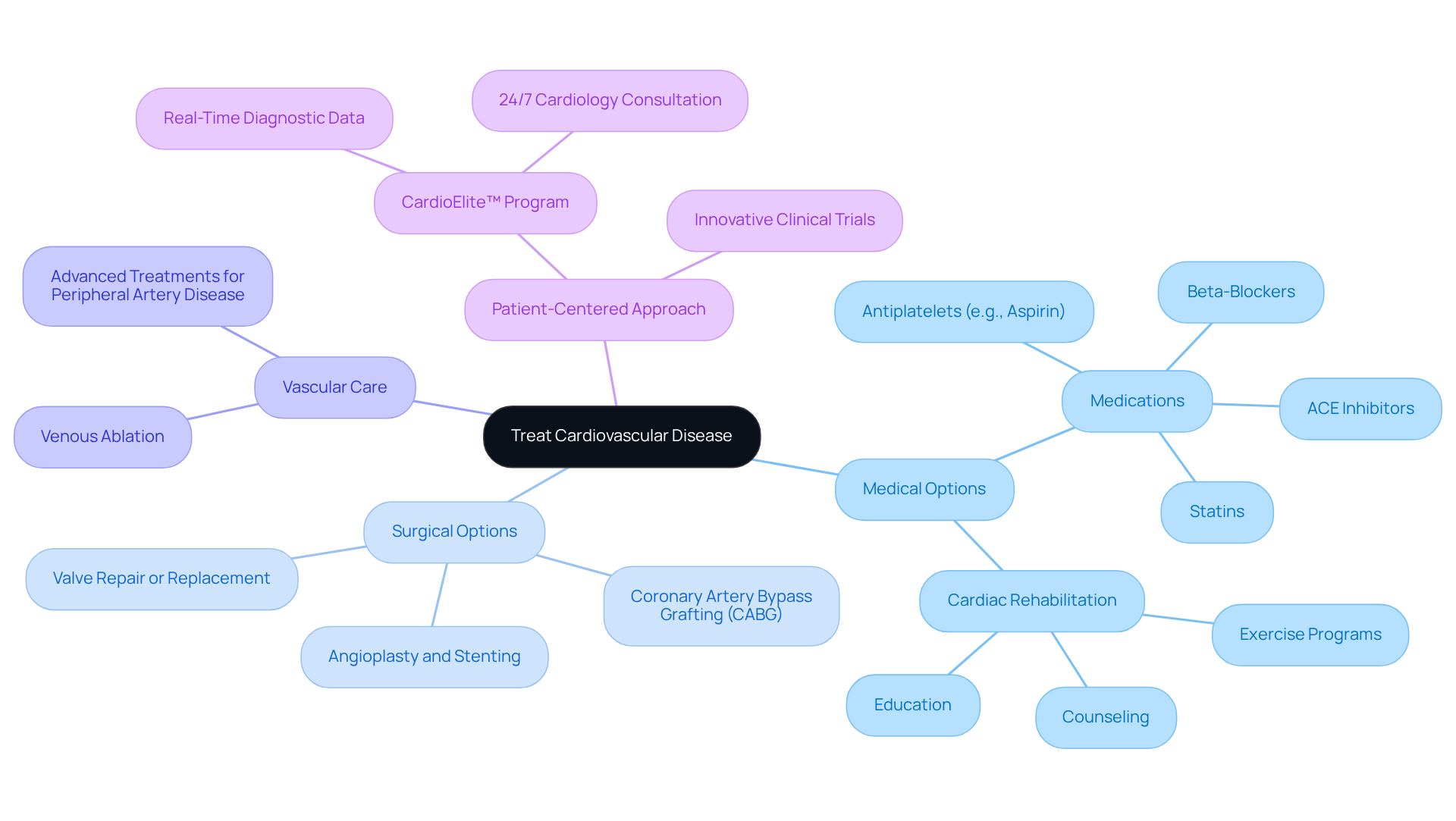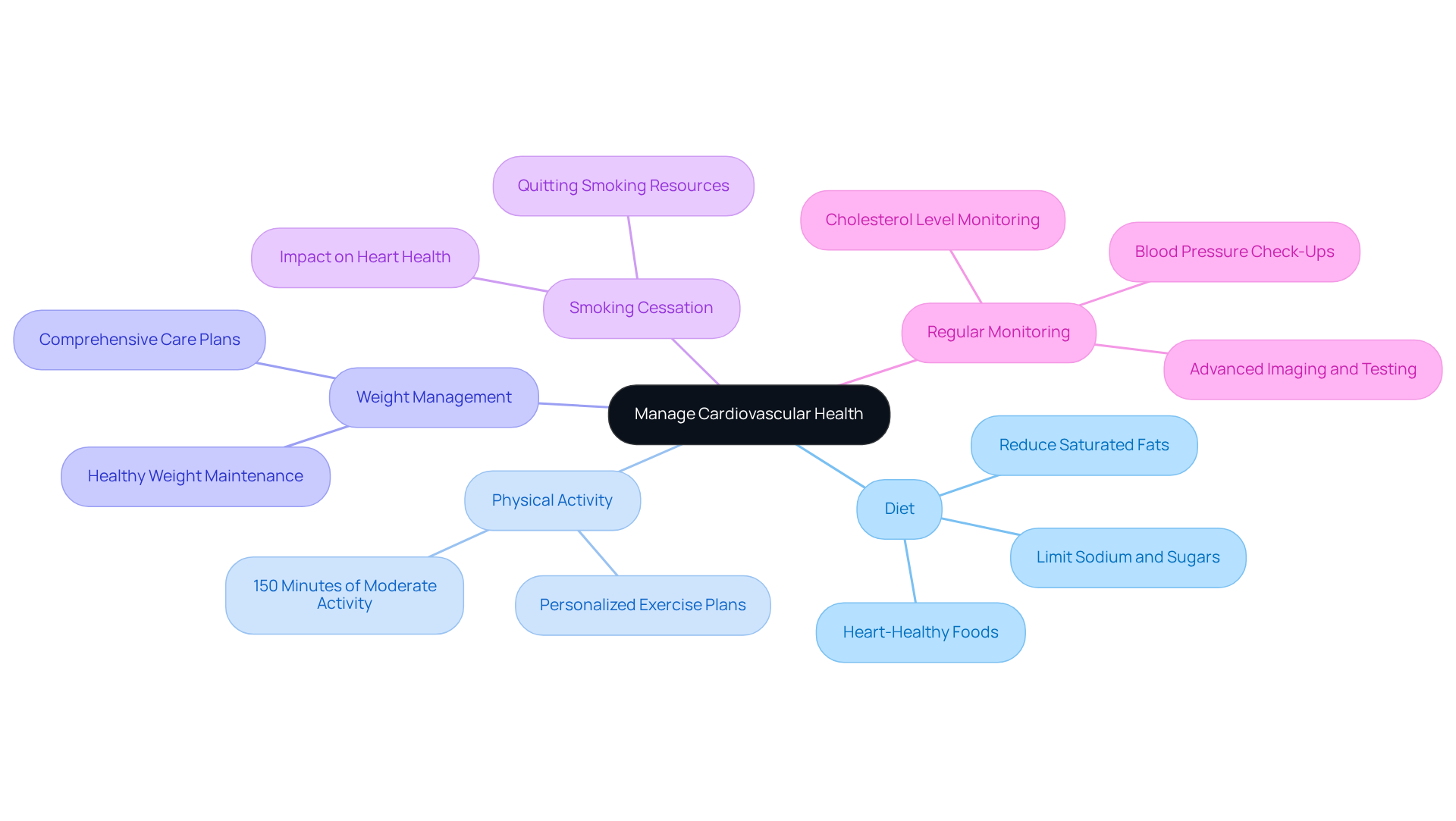


This article addresses the treatment of cardiovascular disease in elderly patients, highlighting the significance of personalized medical and surgical options, complemented by effective lifestyle management strategies. It gently outlines various treatment modalities, including medications and surgical interventions, while also emphasizing the need for individualized care plans and preventive measures. These approaches aim to enhance overall health outcomes for this vulnerable population, ensuring that each patient feels supported and understood in their journey towards better health.
Cardiovascular disease is a significant health concern, especially for older adults, where its effects can be deeply felt and varied. It is essential to understand the types, symptoms, and treatment options available, as this knowledge can greatly improve outcomes and enhance quality of life. As patients navigate the complexities of their cardiovascular health, they may wonder: how can they manage their condition effectively while also considering the risks that come with aging?
This article explores the vital elements of cardiovascular disease treatment specifically designed for older adults, providing insights into:
By addressing these concerns, we aim to offer not just information, but also reassurance and support in managing this important aspect of health.
Cardiovascular illness encompasses a range of conditions that impact the circulatory system and blood vessels. It's important to recognize these issues, as they can significantly affect your quality of life. Common types include:
Symptoms to watch for may include:
Recognizing these symptoms early is crucial, particularly for elderly patients who may exhibit more subtle signs of distress. Have you noticed feeling unusually fatigued during your daily activities? This could indicate several cardiovascular issues, including , heart failure, or valve problems that affect your heart's pumping efficiency.
At Amavita, we offer a thorough cardiac assessment to identify the specific causes of fatigue and help develop a customized cardiovascular disease treatment plan aimed at enhancing your heart function and restoring your energy levels. Furthermore, our innovative AI-powered CardioElite™ program enhances early detection and improves patient outcomes through advanced diagnostic technology, ensuring timely and informed decisions in your cardiac care. We are here to support you every step of the way.

Diagnosing cardiovascular disease can feel overwhelming, but understanding the process is the first step toward better health. It involves a combination of your medical history, a physical examination, and various tests designed to provide a comprehensive view of your heart health.
These assessments, supported by advanced diagnostic tools in the CardioElite™ program, help create a complete picture of your cardiovascular health. This information is crucial in guiding treatment decisions and improving your overall outcomes. Additionally, the program offers a guided pathway to AHA certification and extensive staff education, which can lead to cost savings and differentiation for healthcare facilities.
We understand that navigating your health can be challenging, but know that you are not alone. Our team is here to support you every step of the way, ensuring you receive the care and attention you deserve.

Cardiovascular disease treatment can be broadly categorized into medical and surgical options, each designed to support your health and well-being.
Medical Treatments:
Surgical Options:
Vascular Care:
Selecting the appropriate cardiovascular disease treatment requires careful consideration of your overall health, preferences, and specific cardiovascular conditions. At our organization, we prioritize a patient-centered approach, utilizing our CardioElite™ program to provide comprehensive management and reduce readmissions, particularly in skilled nursing facilities. This by integrating real-time diagnostic data and 24/7 cardiology consultation, empowering you and your healthcare providers alike. Additionally, our commitment to research through innovative clinical trials ensures that we remain at the forefront of advancements in cardiovascular care. Remember, you are not alone on this journey; we are here to support you every step of the way.

Managing cardiovascular health is essential, and it involves adopting lifestyle changes and preventive strategies that are tailored to your individual needs.
Implementing these strategies can lead to improved cardiovascular disease treatment and a better quality of life, especially for elderly patients like you, who may be at higher risk for heart disease. Remember, you are not alone on this journey; we are here to support you.

Understanding cardiovascular disease and its treatment is crucial, especially for elderly patients who often encounter unique challenges. This article highlights the importance of recognizing cardiovascular conditions, accurately diagnosing them, and implementing effective treatment strategies tailored to individual needs. By prioritizing early detection and personalized care, patients can significantly improve their heart health and overall quality of life.
Key insights discussed include the various types of cardiovascular diseases, such as coronary artery disease and arrhythmias, along with their symptoms. The article also delves into the diagnostic tests available, such as ECGs and echocardiograms, and outlines the medical and surgical options for treatment. Furthermore, lifestyle modifications, including diet and exercise, play a pivotal role in managing cardiovascular health and preventing disease progression.
Ultimately, the journey to better cardiovascular health does not have to be faced alone. Embracing a proactive approach that includes regular monitoring, lifestyle changes, and leveraging advanced treatment options can empower elderly patients to take charge of their heart health. By staying informed and engaged with healthcare providers, individuals can navigate their cardiovascular journey with confidence, ensuring a healthier future.
What is cardiovascular disease?
Cardiovascular disease encompasses a range of conditions that impact the circulatory system and blood vessels, significantly affecting quality of life.
What are the common types of cardiovascular disease?
Common types include Coronary Artery Disease (CAD), Cardiac Insufficiency, Arrhythmias, and Valvular Heart Disease.
What is Coronary Artery Disease (CAD)?
CAD arises from plaque buildup in the coronary arteries, which can reduce blood flow to the heart.
What is Cardiac Insufficiency?
Cardiac Insufficiency occurs when the heart struggles to circulate enough blood to meet the body's needs, often causing exhaustion and breathlessness.
What are Arrhythmias?
Arrhythmias are irregular heartbeats that can lead to serious complications, such as stroke or heart failure.
What is Valvular Heart Disease?
Valvular Heart Disease involves damage to one or more heart valves, disrupting blood circulation, with symptoms that may include breathlessness, fatigue, and swelling.
What symptoms should I look for related to cardiovascular disease?
Symptoms to watch for include chest pain or discomfort (angina), shortness of breath, fatigue, swelling in the legs, ankles, or feet, and dizziness or lightheadedness.
Why is it important to recognize symptoms of cardiovascular disease early?
Early recognition of symptoms is crucial, especially for elderly patients who may exhibit more subtle signs of distress.
What should I do if I feel unusually fatigued during daily activities?
Unusual fatigue could indicate several cardiovascular issues, such as coronary artery disease or heart failure. It is advisable to seek a thorough cardiac assessment.
What services does Amavita offer for cardiovascular disease?
Amavita offers thorough cardiac assessments to identify specific causes of fatigue and develop customized treatment plans, as well as an AI-powered program, CardioElite™, for early detection and improved patient outcomes.